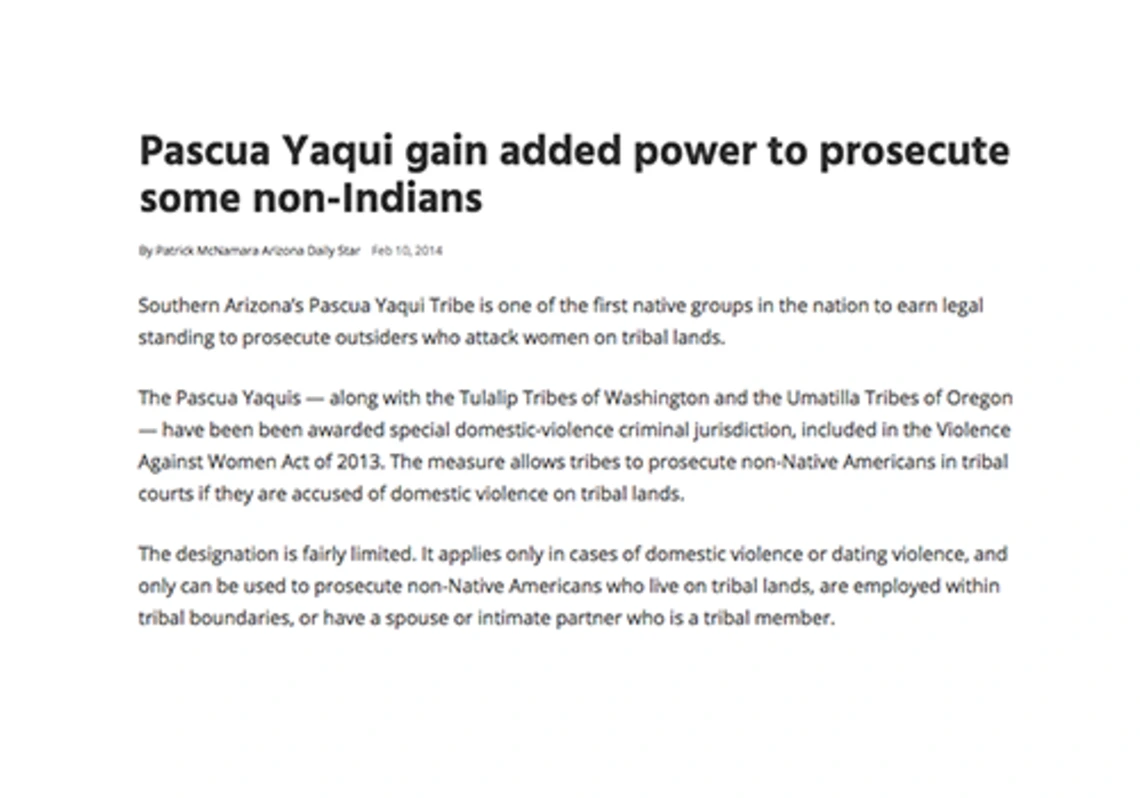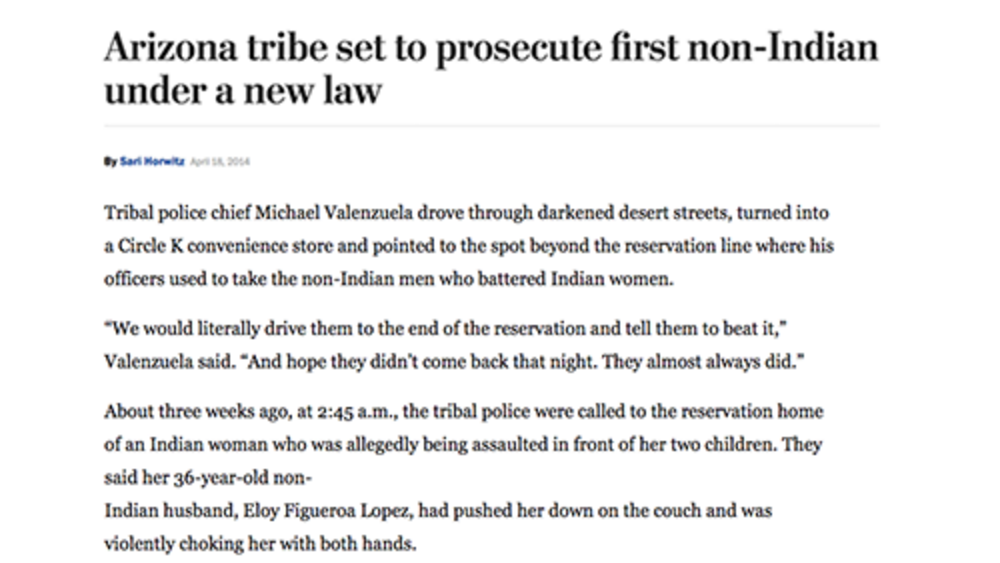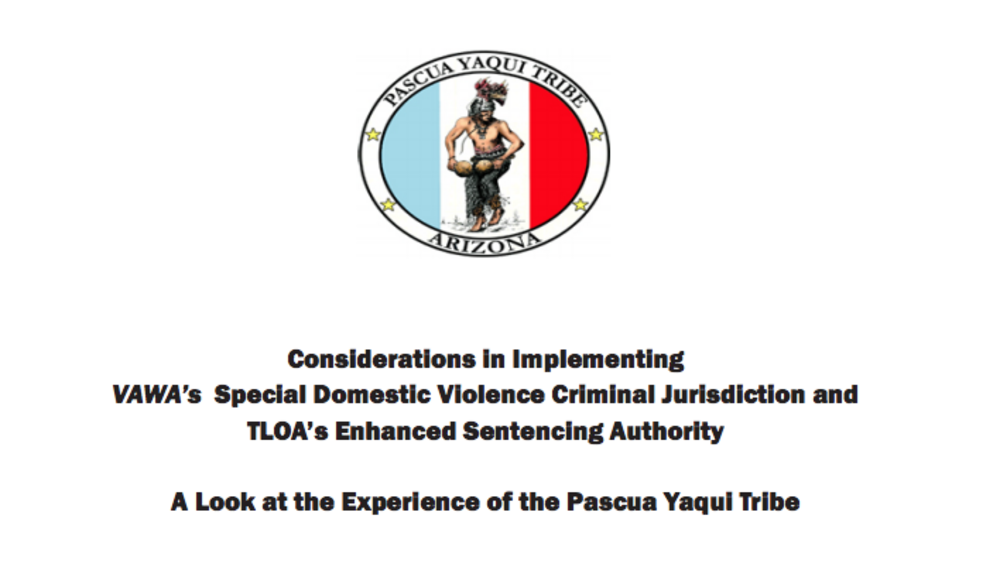Southern Arizona’s Pascua Yaqui Tribe is one of the first Native nations in the country to earn legal standing to prosecute outsiders who attack women on tribal lands.
The Pascua Yaquis – along with the Tulalip Tribes of Washington and the Umatilla Tribes of Oregon – have been been awarded special domestic-violence criminal jurisdiction, included in the Violence Against Women Act of 2013. The measure allows tribes to prosecute non-Native Americans in tribal courts if they are accused of domestic violence on tribal lands...
Additional Information
McNamara, Patrick. "Pascua Yaqui gain added power to prosecute some non-Indians." Arizona Daily Star. February 10, 2014. Article. (http://tucson.com/news/local/pascua-yaqui-seek-broader-jurisdiction..., accessed May 31, 2024)



